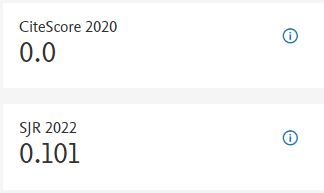Analysis of the relationship between the attitude of farmers of the Irrigated Northwestern plain Zone of Rajasthan towards Circular Agriculture System and their willingness to adopt the practice
DOI:
https://doi.org/10.7492/8s4t0r90Abstract
The increasing ill effects of deep rooted and widely spread injudicious agricultural practices in the Irrigated Northwestern plain zone of Rajasthan have caused severe soil & environmental degradation and biodiversity loss in the region. Hence, the need to induct regenerative farming practices in the agricultural system of the region has become crucial. Circular Agriculture system (CAS) focuses on regenerating soils and reducing environmental degradation by minimizing the use of external inputs in farming techniques. The inclusion of CAS in the farming practices of the region can be a solution to the problems created by the input intensive, industrial agriculture. Attitude plays a crucial role in the adoption of new farming methods. Understanding how farmers perceive circular agriculture system is essential for designing effective interventions. This study aims to assess the farmers' attitude toward CAS and to examine the relationship between their perception and willingness to adopt circular agriculture practices.
A sample of 165 farmers from the districts of Sri Ganganagar, Hanumangarh and Anupgarh was selected through simple random sampling. The data were gathered via questionnaire based on an attitude scale developed by Dr. Vinaya Kumar Hebsale Mallappa et al. (2022). Descriptive statistics, regression modelling, and hypothesis testing were employed to analyze the relationship between farmers' attitudes and their adoption behaviors.
The results indicate that 66.7% of farmers exhibit a favorable attitude toward CAS, acknowledging its ability to provide sustainable yields, mitigate crop failure risks, and combat soil and environmental degradation. Additionally, farmers recognized the approach’s positive contribution in improving economic benefit by reducing reliance on external inputs and improving soil fertility eventually leading to increased production. However, barriers such as the need for learning new management skills, gaining training & technical expertise and inadequate financial support were highlighted. Farmers also expressed a need for robust marketing, infrastructural and supply chain support to facilitate effective adoption of circular agriculture practices.
The hypothesis testing and regression analysis confirmed a significant relationship between farmers' attitudes and their decision of adopting circular agriculture practices. The study rejects the null hypothesis, indicating that positive attitudes toward circular agriculture are associated with higher adoption rates. The study highlights that with appropriate interventions—such as generating awareness, imparting education & training, conducting capacity-building programs, creating marketing channels, enabling easy access of input resources, improving infrastructural and supply chain facilities—the adoption rate of CAS can be significantly accelerated and agricultural productivity and sustainability can be substantially improved. The findings can provide crucial insights for policymakers and agricultural practitioners to develop strategies that can promote the adoption of circular farming practices.

















